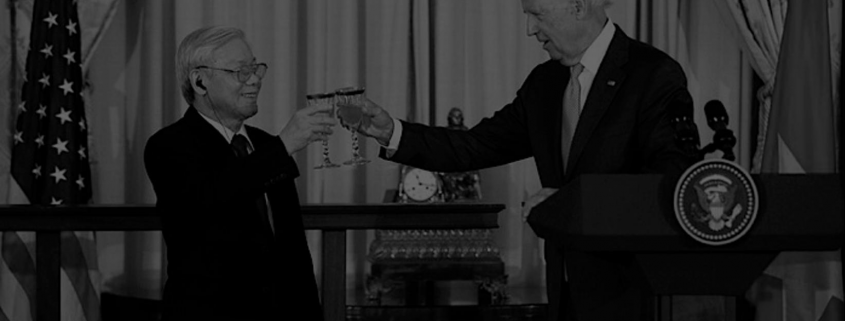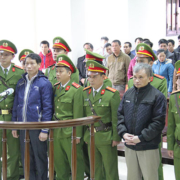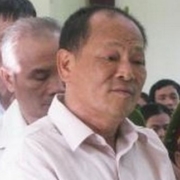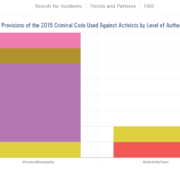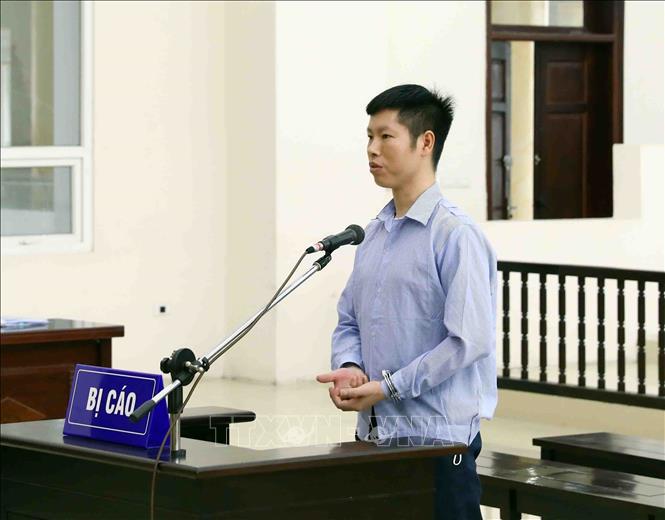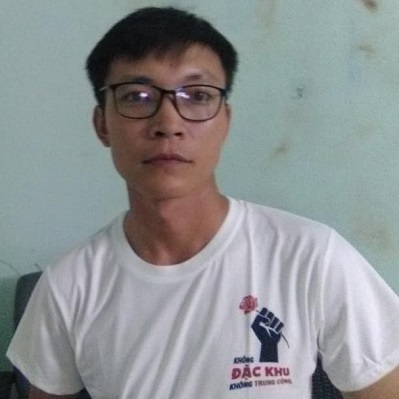Vietnam’s Leaders Declare War on Human Rights as a Matter of Official Policy
CLICK HERE TO READ THE FULL REPORT
Just two months before President Biden upgraded diplomatic relations with Vietnam in September 2023, the country’s top leaders issued a secret national security directive that offers a rare look into their paranoid minds, revealed Project88 in a report published on March 1. Directive 24 frames all forms of international cooperation and commerce as threats to national security and articulates a disturbing plan to deal with these perceived threats by systematically violating the rights of the country’s 100 million citizens.
The directive aims to subvert democratic control over public policy and the economy, while shoring up one-party rule. If implemented as intended, it will lead to systematic and widespread human rights violations, including impermissible restrictions on assembly, association, speech, the media, and movement. It will also result in violations of the right to participate in public affairs, and the right of workers to form independent trade unions and syndicates.
‘The mask is off. Vietnam’s leaders are saying that they intend to violate human rights as a matter of official policy. They are now directly implicated in abuses by the state and should be isolated, not embraced, by the international community’, said Ben Swanton, Co-director of Project88.
The directive comes amid a brutal crackdown on activism, dissent, and civil society that began when General Secretary Nguyen Phu Trong took power in 2016. Since that year, Vietnam’s police state has imprisoned scores of human rights activists and dissenters, while shutting down the only independent journalists’ association, publishing house, and anti-corruption organization operating in the country. More recently, the government has imprisoned the leadership of the climate change movement on false charges of tax evasion, while criminalizing policy activism and enacting extreme restrictions on foreign funding.
‘Since 2016, we have seen a brutal crackdown on activism, dissent, and civil society unfold in broad daylight without fully understanding who or what was driving it’, said Michael Altman-Lupu, Human Rights Researcher at Project88. ‘Directive 24 dispels any ambiguity on the matter, implicating Trong and his inner circle at the Political Bureau’.
Directive 24 proves that Vietnam has no genuine intention to fulfill its human rights commitments. Rather, the country’s leaders merely want to project the appearance of respecting rights on the world stage in order to advance other interests. It is clear from the directive, as well as the situation in the country, that Vietnam’s formal ratification of international agreements does not indicate that the human rights situation in the country has improved.
Directive 24 is an all-out assault on the constitutional and human rights of Vietnam’s 100 million citizens. In issuing the directive, the country’s unelected leaders have made clear that Vietnam will not compromise on human rights, even as it deepens its integration with the international community.
CLICK HERE TO READ THE FULL REPORT
Noteworthy provisions of Directive 24
International travel:
- ‘Closely manage officials, party members, and Vietnamese citizens that go abroad to do business, cooperate, engage in exchanges, visit, and travel’ (p.4).
Democracy:
- ‘Do not allow the formation of independent political organizations in the country’ (p.2).
Compliance with international labor agreements:
- ‘Prevent the establishment of labor organizations on the basis of ethnicity or religion’ (p.4).
- ‘Take proactive initiative when participating in the International Labor Organization’s Convention that protects freedom of association and the right to organize, ensuring the ongoing leadership of the Party, leadership of party cells, and government management at all levels’ (pp.3-4).
- ‘Monitor and deal with, in a timely and strict manner, labor organizations that establish or operate in violation of the law’ (p.4).
- ‘Build a robust and comprehensive Vietnam General Confederation of Labor, which represents the permitted and legitimate rights and interests of workers [emphasis added] nationwide, and serves as a solid bridge between the Party and workers’ (p.5).
- ‘Resolve labor disputes, especially collective labor disputes, early’ (p.5).
International cooperation:
- ‘Focus on developing and organizing the strict implementation of policies and laws on national security, especially in relation to international development cooperation projects, foreign investment, the activities of multinational corporations, foreign non-governmental organizations in Vietnam; associations, social funds, charities, religious organizations, social enterprises and alliances, as well as the links between these groups; organizations and activities that receive foreign support and aid; cultural activities; the establishment and operation of trade unions; dialogue, negotiation, and signing of collective labor agreements; connections, especially connections formed in organization of strikes’ (p.3).
- ‘Heighten vigilance and prevent severe threats to national security such as “self-evolution” and “self-transformation,” especially in policy-making and legislative development, that weakens the regime from within and threatens the interests of the nation, people, and the survival of the regime; weakens cultural identity resulting in a decline in national strength; decreases vigilance, being caught off guard when participating in initiatives and strategies of great powers; allows foreign investors to “hide in the shadows,” take over domestic markets and businesses and occupy vital economic sectors, while holding influential positions in defense and security that adversely affects our independence, economic autonomy and political stability; and people taking advantage of international institutions and commitments that Vietnam has signed to mobilize and form opposition political organizations, promoting “color revolutions” and “street revolutions”’ (pp.2-3).
International aid to Vietnam:
- ‘Increase the management of receipt of foreign aid, especially projects related to policymaking and development of legislation’ (p.4).
- ‘Do not accept foreign funding for legislative development projects that have complex and sensitive content’ (p.4).
- ‘Closely manage international cooperation activities; regularly inspect, examine, monitor, promptly detect and take measures to prevent attempts to exert influence through economic, cultural, and social activities that affect national security’ (p.3).
- ‘Strictly implement the process of proposing, approving, and soliciting opinions on international economic cooperation programs, initiatives, and projects, as well as foreign investment in strategic and core areas of national defense and security’ (p.4).
- ‘Focus on developing and organizing the strict implementation of mechanisms, policies and laws on ensuring security, especially in relation to international cooperation programs and projects, foreign investment, activities of multinational corporations and foreign non-governmental organizations in Vietnam’ (p.3).
Culture:
- ‘Urgently research and build a national value system, cultural value system, and moral standards that preserve and promote the Vietnamese family value system in the new era, focused on educating people about historical, cultural, and revolutionary traditions’ (p.5).
Freedom of expression:
- ‘Promote the role of the press and media in fighting populist trends, civil disobedience, wrongful views and sabotage by hostile forces, and efforts to promote a hybrid foreign culture that does not conform to the customs and traditions of the nation’ (p.5).
- ‘Strictly handle the act of taking advantage of information communication infrastructure and social networks to spread false propaganda that sabotages the Party, State, People, and our country’s socialist regime’ (p.5).
- ‘Fight fake news, especially in cyberspace’ (p.5).
- ‘Develop rules of civilized behavior [emphasis added] in state agencies, businesses, society, and cyberspace’ (p.5).
Right to peaceful assembly:
- ‘Firmly grasp the situation, proactively prevent, promptly detect, and effectively fight all plots and activities of enemy forces, reactionaries, political opponents, and all types of criminals, especially activities to install spies, incite protests and riots, violate the legitimate interests of the State, organizations, and people’ (p.6).
Civil society oversight of international agreements:
- ‘Proactively develop plans to prevent and control complicated situations relating to security and social order [emphasis added] as Vietnam implements international commitments, ensure national security in all scenarios’ (p.2).
- ‘Proactively resolve complex issues [emphasis added] that arise during the implementation of commitments, while minimizing damage to the national interest’ (p.5).
Securitizing economic, cultural, social, and foreign affairs:
- ‘Closely integrate economic, cultural, social, and foreign affairs with defense and security, while integrating defense and security with economic, cultural, social, and foreign affairs’ (p.2).
Surveillance:
- ‘Pay attention to building and strengthening people’s security conditions, people’s security posture, and the All People Protect National Security movement, especially in residential communities, industrial parks, economic zones, export processing zones, and areas with a large concentration of workers’ (p.5).
Directive 24 shares a striking similarity with Document 9, a Chinese Communist Party (CCP) directive disseminated in April 2013 that enumerated a list of seven trends and activities that, according to the CCP, posed a threat to the party. Like Directive 24, Document 9 made clear that the one party-state would exert control over all expression in the country and limit the ability of civil society in China to operate. It appears that, one decade later, Vietnam is following in China’s footsteps.
Project88’s English translation of Directive 24
Document No. 322
PARTY CENTRAL COMMITTEE
COMMUNIST PARTY OF VIETNAM
No. 24-CT/TW. Hanoi, July 13, 2023
SECRET
DIRECTIVE OF THE POLITICAL BUREAU
on ensuring national security in the context of comprehensive and deep international integration
—–
In recent years, under the leadership of the Party, the management of the State, and the active participation of the People, the work of ensuring national security has achieved many significant results, contributing to protecting the Party, State, the People, and the socialist regime; ensuring the national interest; maintaining a peaceful and stable environment, serving economic, cultural, and social development, strengthening national defense and security, expanding foreign relations, and enhancing Vietnam’s position and reputation in the international arena.
However, the comprehensive and deep international integration and implementation of trade agreements has created new difficulties and challenges for national security. Security in the economy, finance, currency, foreign investment, energy, labor… is not firm, there is a latent risk of foreign dependence, manipulation, and seizure of certain “sensitive” areas. Some aspects of morality, lifestyle, and culture have seriously degraded, causing social unrest. Hostile and reactionary forces have thoroughly taken advantage of the international integration process to increase their sabotage and internal political transformation activities, impacting policymaking and legislative development, creating linkages, developing forces, forming “civil society” alliances and networks, “independent trade unions,”… creating the premise for the formation of domestic political opposition groups.
The main reason is that the competitiveness of the economy is still low; state management has not kept up with developments; socialist-oriented economic institutions have yet to be perfected and harmonized; some party committees, organizations, officials, and members are not sufficiently aware of new developments and have not strictly taken responsibility for ensuring national security in the process of comprehensive and deep international integration, instead viewing national security as the task of specialized agencies; they remain subjective and lack vigilance in international cooperation, and continue to receive foreign-funded programs and projects. Mechanisms, policies, and laws for ensuring national security lack harmony and have not been promptly adjusted to address these complex issues. The management of foreign aid and funding is not strictly regulated and does not focus on inspecting and investigating foreign projects. Coordination between agencies and organizations in the political system and core forces in charge of protecting national security has been formalized but not yet routinized.
In the coming time, the world and domestic situations will place very high demands on efforts to ensure national security. To improve performance and overcome limitations and difficulties associated with ensuring national security in the context of comprehensive and extensive international integration, the Pollical Bureau requests party committees, party organizations, authorities, the Vietnam Fatherland Front, and socio-political organizations at all levels to thoroughly grasp, take leadership over and direct the following orders:
- The work of ensuring national security plays a critical position and role, it is a vital and regular task of the entire Party, the entire people, and the entire armed forces, including the People’s Public Security force and the People’s Army who are the core, the shock force; placed under the absolute, direct leadership of the Party, the centralized and unified management of the State, and with the coordination, synchronization, and efficiency of the entire political system, as well as the active participation of the People. Promote the responsibilities of party committees and organizations at all levels, especially leaders, leaders, and managers, in strictly leading, directing, and implementing the Party’s policies. Take measures to prevent, stop, and promptly and effectively handle complex national security issues. Closely integrate economic, cultural, social, and foreign affairs with defense and security, while integrating defense and security with economic, cultural, social, and foreign affairs. Consistently implement the Party’s guidelines for ensuring national security, goals, opinions, mottos and principles, including “partners and actors,”; “cooperate and fight,” “preemptive security,” “comprehensive security and development,” “maintain internal stability as a central principle,” do not allow the formation of independent political organizations in the country. Maintain independence, autonomy, security, the national interest, and strategic initiative; protect the country early and from afar, do not be passive or surprised, do not to fall into a position of confrontation, isolation, or dependence in any field, situation, or context.
- Promote extensive, regular, and continuous propaganda work in the political system, with officials, party members, and people to raise awareness and promote responsibility for ensuring national security; heighten vigilance and prevent severe threats to national security such as “self-evolution,” “self-transformation,” especially in policy-making and legislative development, that weaken our regime from within and threaten the interests of the nation, people, and the survival of the regime; weaken cultural identity resulting in a decline in national strength; decreases vigilance, being caught off guard when participating in initiatives of great powers; allow foreign investors to “hide in the shadows,” take over domestic markets and businesses and occupy vital economic sectors, while holding influential positions in defense and security that adversely affects our independence, economic autonomy and political stability; and people taking advantage of international institutions and commitments that Vietnam has signed to mobilize and form opposition political organizations that implement “color revolutions” and “street revolutions”.
Strengthen diplomacy on the Party’s guidelines and policies and the State’s policies and laws, especially with regards to international integration; affirming that Vietnam is a friend, a reliable partner, and an active and responsible member of the international community. Actively fight the false arguments of hostile forces while fostering support from international public opinion for the cause of building and protecting the Fatherland of our Party, State, and People.
- Harmonize policies and laws with international commitments and Vietnam’s practices, create a solid legal basis to prevent and resolve complex national security issues. Focus on developing and organizing the strict implementation of security mechanisms, policies and laws, especially in relation to international cooperation programs and projects, foreign investment, activities of multinational corporations and foreign non-governmental organizations in Vietnam; associations, social funds, charities, religious organizations, social enterprises and alliances, as well as the links between these groups; organizations and activities that receive foreign support and aid; cultural activities; the establishment and operation of trade unions; dialogue, negotiation, and signing of collective labor agreements; connections, especially connections formed in organization of strikes; the responsibility of organizations and individuals in fighting fake news, especially in cyberspace; the coordination, linking, and sharing of information about databases and information infrastructure between ministries, branches, and localities that serve socioeconomic development and ensure national security.
Strictly pilot the establishment of several employee organizations in businesses; take proactive initiative when participating in the International Labor Organization’s Convention that protects freedom of association and the right to organize, ensuring the ongoing leadership of the Party, leadership of party cells, and government management at all levels. Monitor and deal with, in a timely and strict manner, labor organizations that establish or operate in violation of the law. Prevent the establishment of labor organizations on the basis of ethnicity or religion.
- Strengthen the work of protecting the internal political system and state secrets. Strictly implement the Party and State’s regulations on the organization and management of officials and party members working in core, confidential, and international cooperation fields, including those that have relationships and contacts with foreigners and foreign organizations. Closely manage officials, party members, and Vietnamese citizens that go abroad to do business, cooperate, engage in exchanges, visit, and travel… Increase the management of foreign aid, especially for projects related to policymaking and legislative development; do not accept foreign funding for legislative development projects that have complex and sensitive content; and by all means limit other projects. Closely manage international cooperation activities; regularly inspect, examine, monitor, promptly detect and take measures to prevent attempts to exert influence through economic, cultural, and social activities that affect national security.
- Build an independent and self-reliant economy along with proactive, positive, comprehensive, and effective deep international integration while firmly grasping the situation and taking preventive measures and repelling attempts to take advantage of integration to sabotage the economy. Respond effectively to fluctuations in the world and regional economy. Chose industries and sectors that have potential and advantage to participate in global supply and value chains; diversify products, markets, and supply chains, avoid the risk of depending on one market. Promote selective investment, ensure quality, efficiency, and an ecological environment; appraise, evaluate, and closely monitor foreign investment activities in core and strategic economic sectors and industries. Strictly implement the process of proposing, approving, and soliciting opinions on international economic cooperation programs, initiatives, and projects, as well as foreign investment in strategic and core areas of national defense and security. The Ministry of Public Security, the Ministry of National Defense, and other functional agencies must perform their roles of state management, enhanced inspection and supervision, and ensure absolute security and national defense.
Promote economic diplomacy, proactively research and selectively participate in multilateral initiatives and economic blocks, negotiate and sign trade agreements that conform to the interests and national security of Vietnam, continue to expand and create intertwined economic interests with partners; proactively resolve complex issues that arise during the implementation of commitments, while minimizing damage to the national interest.
- Preserve and promote cultural and national identity while selectively absorbing the best aspects of human culture. Urgently research and build a national value system, cultural value system, and moral standards that preserve and promote the Vietnamese family value system in the new era, focus on educating people about historical, cultural, and revolutionary traditions. Develop rules of civilized behavior in state agencies, businesses, society, and cyberspace. Effectively manage and overcome limitations and inadequacies in cultural activities, information, media, the press, and foreign cultural products; promote the role of the press and media in fighting populist trends, civil disobedience, wrongful views and sabotage by hostile forces, and efforts to promote a hybrid foreign culture that does not conform to the customs and traditions of the nation. Strictly handle the act of taking advantage of information communication infrastructure and social networks to spread false propaganda that sabotages the Party, State, People, and our country’s socialist regime.
- Promote the role of the Vietnam Fatherland Front and mass society organizations in mobilizing people from all classes to actively participate in patriotic movements and activities that contribute to ensuring national security, social order, and safety. Build and strengthen national solidarity. Build a robust and comprehensive Vietnam General Confederation Of Labor, which represents the permitted and legitimate rights and interests of workers nationwide and serves as a solid bridge between the Party and workers.
Constantly pay attention to and effectively implement policies, especially social security policies; constantly improve the material and spiritual life of workers; resolve labor disputes, especially collective labor disputes, early; ensure harmony between the interests of the State, business, and workers, do not allow hostile forces and harmful elements to take advantage of, incite and attack.
- Pay attention to building and strengthening people’s security conditions, people’s security posture, and the All People Protect National Security movement, especially in residential communities, industrial parks, economic zones, export processing zones, and areas with a large concentration of workers; to raise awareness about and promote responsibility for protecting national security, while preventing and combating crime and social evils.
Firmly grasp the situation, proactively prevent, promptly detect, and effectively fight all plots and activities of enemy forces, reactionaries, political opponents, and all types of criminals, especially activities to install spies, incite protests and riots, violate the legitimate interests of the State, organizations, and people; proactively develop plans to prevent and control complicated situations relating to security and social order as Vietnam implements international commitments, ensure national security in all scenarios.
- Cells and organizations at all levels under the Central Party Committee must promulgate and disseminate this directive in line with their assigned functions and tasks, while developing specific plans and programs of action and regularly evaluating implementation of the directive.
The National Assembly’s Party Committee and the Government Party Committee lead and direct the process of institutionalizing the content of the directive, specifically by reviewing, amending, supplementing, and completing legal documents to ensure synchronization and consistency, creating a legal basis for effective implementation of the Directive.
The Central Committee’s Economic Commission, the Central Propaganda and Training Commission, the Commission for Mass Mobilization, the Party Delegation of the Vietnam Fatherland Front, and the Party Organization of the Vietnam General Confederation of Labor lead and direct implementation of the Directive implementation in line with the assigned functions and roles.
The Central Public Security Party Committee will preside over and, coordinating with relevant organs, advise, guide, monitor, urge, and inspect implementation, periodically reporting preliminary and final results on implementation of the Directive to the Political Bureau and the Secretariat.
Recipients:
– Provincial party committees, city party committees,
– Party committees, party staff committees,
party committees directly under the central government,
– The Secretariat
Ho Chi Minh Communist Youth Union,
– Party committees of the central service units,
– The Party members
Central Party Committee,
– Office of the Party Central Committee
On behalf of the Political Bureau
[Signature]
Trương Thị Mai
CLICK HERE TO READ THE FULL ANALYSIS OF DIRECTIVE 24
© 2023 The 88 Project


